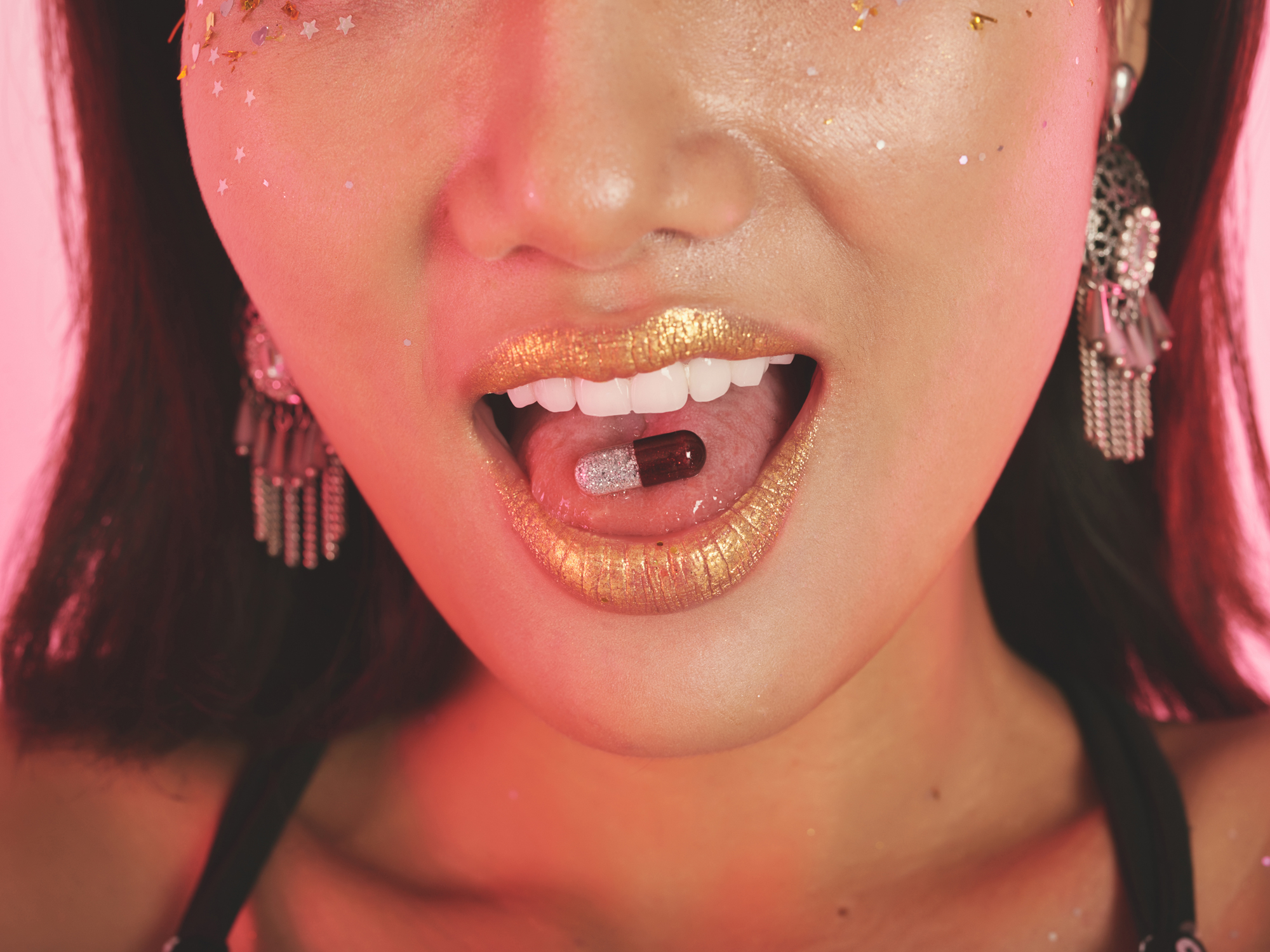Get Easy Health Digest™ in your inbox and don’t miss a thing when you subscribe today. Plus, get the free bonus report, Mother Nature’s Tips, Tricks and Remedies for Cholesterol, Blood Pressure & Blood Sugar as my way of saying welcome to the community!
Did the FDA really just approve a ‘party drug’ to treat depression?

We all have our “blue” days.
But for people who suffer from Major Depressive Disorder (MDD), the word “depressed” has a whole other meaning.
Depression can be debilitating. It can also be fatal.
For this reason, science has been on the trail of an effective, safe medication for major depression for about thirty years now.
One class of medication seems to have worked, at least in the short term. But it comes with side effects that can be deadly. Seems like a poor trade-off.
Science has been looking for alternatives, and in the past year, an entirely different drug has been sent along the fast track to approval.
Too fast.
From party drug to FDA approval?
A year ago, I wrote about ketamine and its derivative, esketamine.
At that time, esketamine had just completed Phase II trials, a step on the path to FDA approval.
Before we go on, a little background about ketamine.
In 1970, ketamine was given FDA approval as a general anesthesia drug. It was used as a field anesthetic during the Vietnam War.
Ketamine is also referred to as “Special K” among people who use it as a party drug.
In 1999, concerns over ketamine’s potential abuse as a hallucinogenic drug caused the Drug Enforcement Administration (DEA) to classify it as a Schedule III drug, the highest restriction given.
In fact, ketamine has long been abused as a “street drug,” with side effects including convulsions, irregular heartbeat, hives, fatigue, shortness of breath and blurry vision. Ketamine is highly addictive, and at high doses can be fatal.
So, why would the FDA approve a drug derived from this dangerous substance and make it available to people who are already emotionally at risk?
The fast track to profits
Earlier this month, the FDA approved Spravato, a nasal spray form of esketamine.
Some doctors already use ketamine off-label (without FDA approval) for their depressed patients who don’t respond to more traditional meds and have reported some good results.
Ketamine targets a brain chemical called glutamate, which is thought to restore brain connections that relieve depression.
In contrast to Prozac, the widely prescribed depression drug that’s been around since the 1980s, ketamine’s effect is almost immediate.
But let’s stop for just a minute.
As I mentioned, it was less than a year ago that Johnson and Johnson, makers of Spravato, completed Phase II trials of the drug.
A Phase II trial in no way indicates that a drug is either safe or effective. It merely demonstrates preliminary possibilities for its use.
Yet, 11 months later, here we are with an approved medication derived from a hallucinogenic party drug.
On the strength of a questionnaire that showed patients feeling more relief with esketamine (the form of ketamine in Spravato) than they did with no treatment, the nasal spray is now an approved drug.
Wall Street analysts are predicting more than $600 million in annual sales of Spravato by 2022.
Follow the money, folks.
Safer, natural ways to fight depression
You’ve heard us say this before: if you are on a long-term medication for a condition such as depression, we are not recommending you stop it without your doctor’s advice.
But many of the most common medications, SSRIs, don’t work for everyone.
However, there are some potent, natural ways to fight back against depression.
One natural treatment that the FDA has been trying its best to push to the bottom of the stack of clinical trial approvals may finally get its chance to prove to the world that it’s a safer (better than a party drug for sure!), more natural way to fight depression.
In case you’re wondering, I’m talking about mushrooms containing the psychoactive compound psilocybin, which can help people overcome everything from addiction to post-traumatic stress to depression. In fact, psilocybin might be one of the more promising depression treatments available.
Hopefully, it won’t be much longer till those in need get a chance to find out. Psilocybin’s benefits are big enough that even the FDA has finally just approved a clinical trial to test psilocybin therapy in people with treatment-resistant depression.
Until then, here are other natural options that might help depression symptoms:
Magnesium. Studies show that the right dosage of magnesium supplements can relieve symptoms of depression and anxiety.
Yoga. According to studies presented at the 125th annual convention of the American Psychological Association, yoga is effective at reducing symptoms of depression.
Marijuana. This is one you’ll want to talk to your doctor about. But if medical cannabis is legal in your state, just know that there is growing evidence of its ability to relieve depression in a way that lasts.
And here, my colleague Dr. Adria Schmedthorst offers a look at the diet that can dash depressive symptoms, along with several other things you can do to ease depression naturally.
Sources:
- This ketamine-like drug has been approved to treat depression — Time
- Targeting the Glutamatergic System to Treat Major Depressive Disorder — Drugs
- A brief history of the development of antidepressant drugs: From monoamines to glutamate — Experimental and Clinical Psychopharmacology
- What You Need to Know About Ketamine’s Effects — WebMD
- Yoga Effective at Reducing Symptoms of Depression — American Psychological Association













